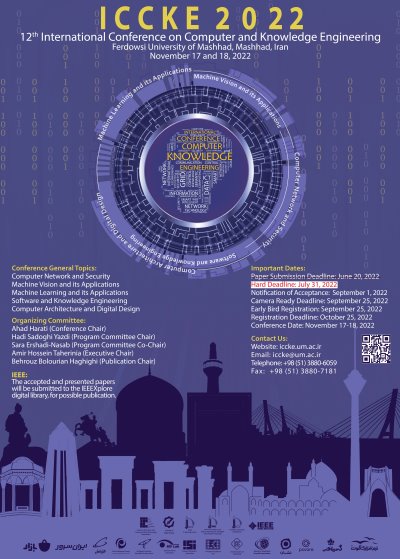0% Complete

Authors :
Keywords :
Abstract :
List of archived papers
Sadegh Sulaimany Sulaimany - Yasin Amini
Elham Shabaninia - Fatemeh sadat Eslami - Ali Afkari Fahandari - Hossein Nezamabadi-pour
Milad Sattari Maleki - Seyedeh Niusha Motevallian - Faezehsadat Hosseini - Mohammad Sabokrou - Hamidreza Soltanalizadeh Maleki
Alireza Nezamzadeh - Mohammadreza Esmaeilidehkordi
Ali Ganjbakhsh - Ahad Harati
Aref Farhadipour - Homa Asadi - Volker Dellwo
Masoumeh Alinia - Seyed Mohammad Hossein Hasheminejad - Hadi Shakibian
Shima Esfandiari - Ashkan Sami
Reza Behkam - Amir Lotfi - Gevork B. Gharehpetian
Ali Asadi Zeidabadi - Melika Changizi - Mahdi Zolfagharzadeh Kermani - Sara Bargi Barkouk




